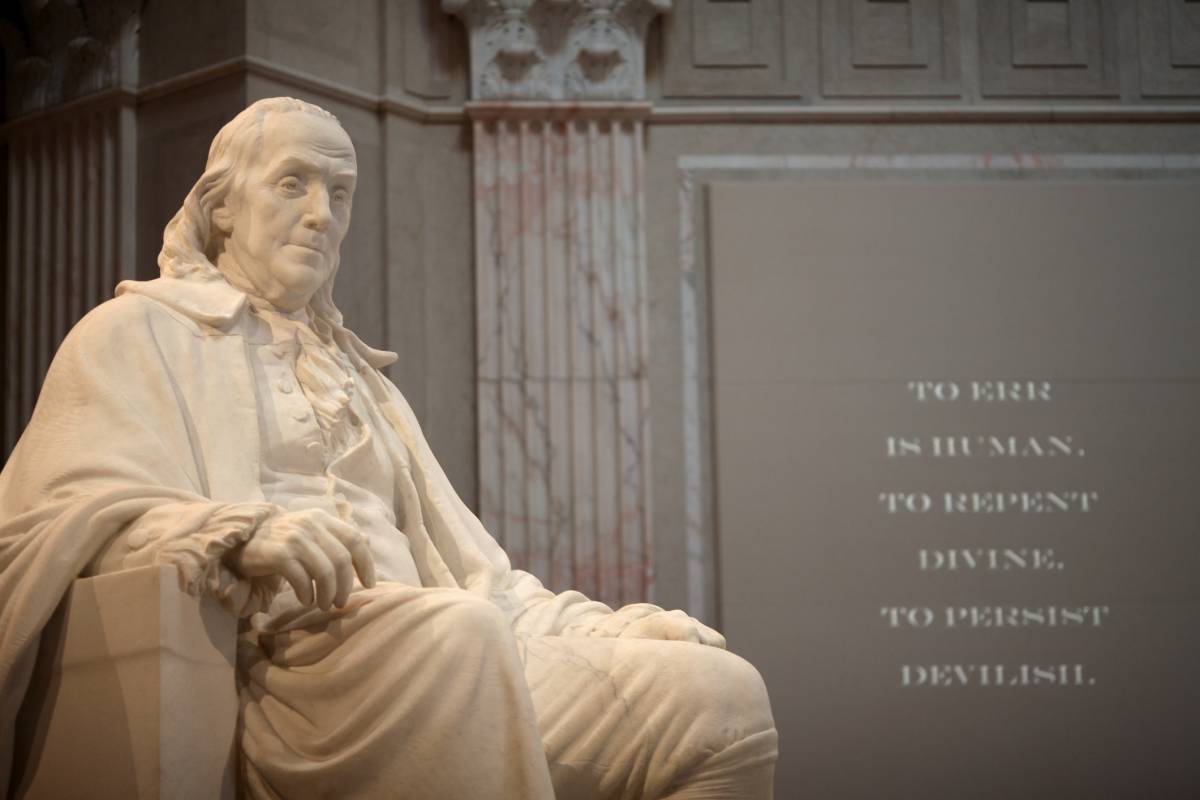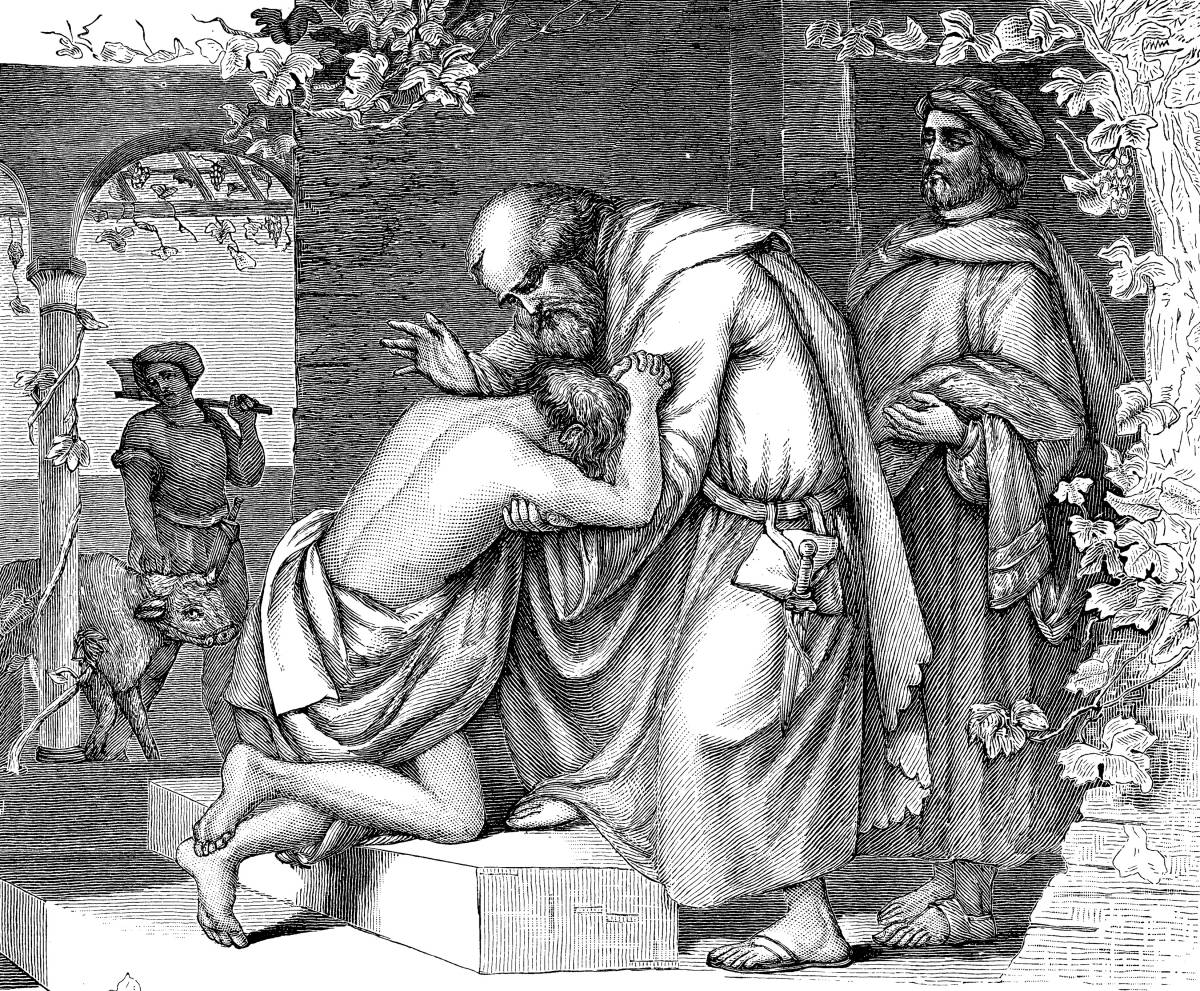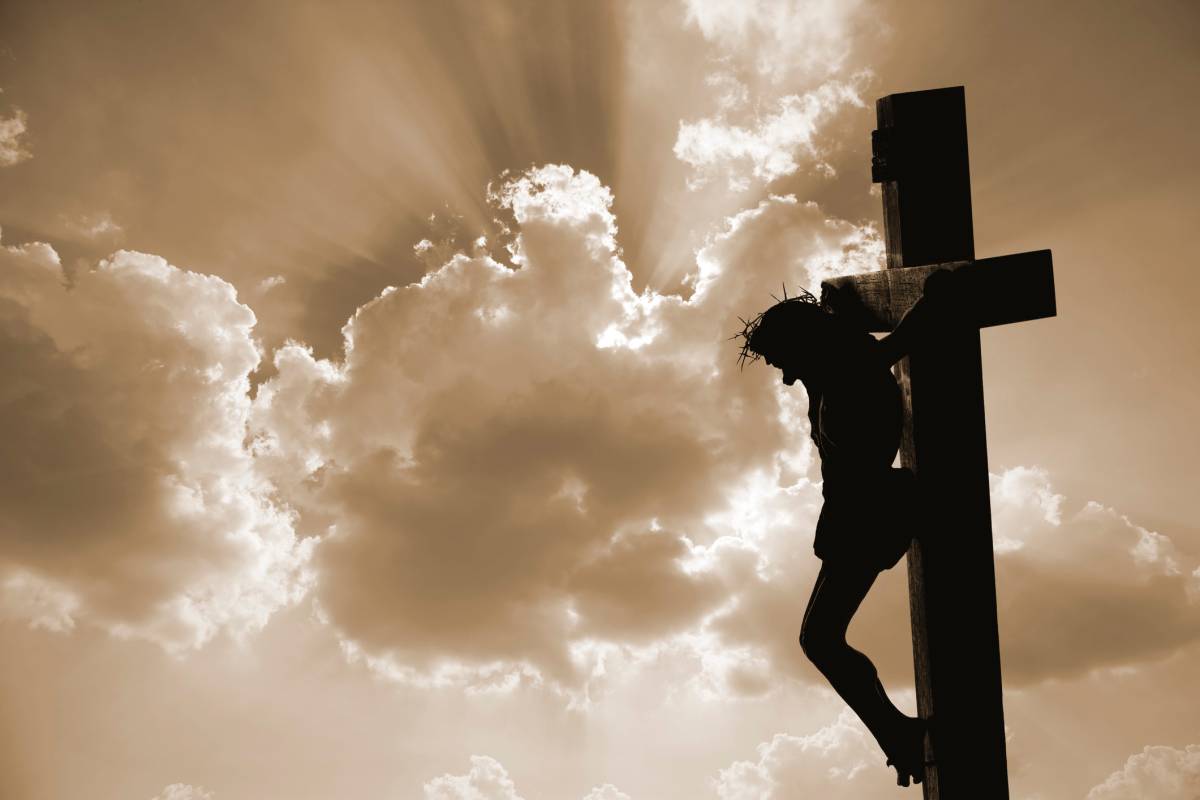The consequences of the attitude and actions of unwarranted pride are nothing new to the human race. Indeed, it is the central story of human history. The universal experience of it and its unseen and unwanted consequences is recounted in many ways. Yet, as often as we see the dark and painful results of the prideful attitudes and acts of others, or encounter them in ourselves, this foolish vice remains the bane of our existence. We never seem to learn the worthy lesson of “Pride goeth before destruction, and a haughty spirit before a fall” (Prov. 16:18). It is, after all, the Original Sin, from which all of the other deadly sins find their genesis.

In a letter written to the son of the Puritan clergyman, Cotton Mather, Benjamin Franklin recounted a story about an occasion when he had entered the senior Mather’s library and forgot to duck under the low beam of the door, and banged his head. Mather, seeing this, simply said, “Stoop as you go through it, and you will miss many hard thumps.” Franklin would later remember that seemingly offhand bit of advice as a metaphor for the virtue of humility. He would be reminded of it whenever he witnessed pride, either in himself or in others, that led to negative consequences. He associated this attitude of humility with a more positive and effective leadership style than the more common forms rooted in pride and self-promotion.

As Christians, we have a powerful and recognizable story to remind us of the dark consequences of pride and the light-filled, redemptive, transformative, and liberating nature of humility. It is found in the 15th chapter of Luke’s Gospel, verses 11-32. We know the story under the title of the Prodigal Son. It is about a young man, full of himself and his desires, who demands his part of his father’s inheritance, leaves home, and squanders everything in his efforts to shape his own life in “his” way, and to appease his appetites. And we remember that it was only when he had reached the bottom of the dark pit of his own making that he came to his senses, and determined to return home humbled and contrite.

He had hit rock bottom. His prideful choices and his dissolute lifestyle had brought him to a place of darkness in his own life, and within his conscience, that he had neither consciously desired nor expected. He had been blinded by pride. Because of his prideful choices, he had descended, unwittingly, from the height of comfort and the promise of prosperity that were proper to his former life, to the defiling, smelly desperation and humiliation of having to tend another master’s pigs. It was in the darkness of that realization that he “saw the light” and turned back toward that place in the world, and that place in his own heart, that he could call “home”, his father’s house.
He returned home chastised and humbled. He felt no longer worthy of being treated as his father’s son, but hoped that he might be taken on as one of his father’s hired hands. Instead, he was greeted with the unexpected joy and the liberating redemption of his father’s unconditional love and forgiveness. He had discovered that his brash and arrogant claims to shape his destiny, free from any constraints, rules, or demands of his father, had led him to darkness and despair. He realized that the happiness he had desired and pursued all along resided in his father’s house, under his father’s roof, and in submission to his father’s wisdom.

What we learn from this parable is that it is in our humble recognition and submission to the will of the Father that we find the true and lasting peace we desire. Sin is real, but God’s infinite and unconditional love and forgiveness are an even greater reality. It is worldly pride that sees and judges the ways of God as foolish, never seeing its foolishness. We must learn to look to Jesus Christ to see the wisdom of God, for in him we see that “the foolishness of God is wiser than human wisdom, and the weakness of God is stronger than human strength” (1 Cor. 1:25).
SKM: below-content placeholderWhizzco for FHB

